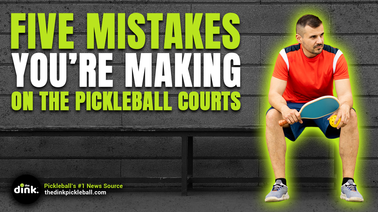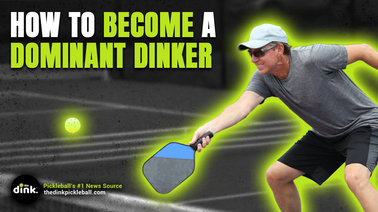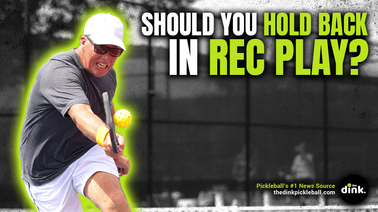
You've likely been introduced to pickleball as the fastest-growing sport in America. Or someone just put a weird paddle in your hand and told you to hit an odd-looking wiffle ball.
Whatever your entry point into this strange mix of badminton, ping pong, and tennis, let us be the first to say, "Welcome to the cult."
Enjoy the newsletter, subscribe today and receive the next issue straight to your inbox.
We'll shed some light below on the history of pickleball, including who created it and why the heck is it called pickleball, anyway.
The History of Pickleball
Back in 1965, on Bainbridge Island, Washington, a group of friends, Joel Pritchard, Bill Bell, and Barney McCallum, were bored one summer evening. They intended to play badminton but couldn't find the shuttlecock (talk about weird names).
So they improvised, grabbing some wooden paddles and a Wiffle ball. The first games were played on a badminton court, which measures 44 feet long and 20 feet wide, or about half the size of a tennis court.
They enjoyed their new sport so much that they began making rules – and eventually, lowered the net.
Thus, the early iteration of pickleball began. Almost 60 years later, nearly 50 million adult Americans have played it, and its appeal is spreading rapidly worldwide.
How Pickleball Got Its Name
Several stories circulate around the term ‘pickleball,’ much like the dinking and volleying that define the sport. One popular yarn is that the game was named after Pritchard's dog, Pickles, who had a penchant for chasing stray balls. The intent was to honor the game's unofficial mascot.

Another story, supported by Barney McCallum, claims that pickleball was named after the term "pickle boat" used in crew, which refers to boats crewed by oarsmen chosen from the leftovers of other boats.
According to Jennifer Lucore, who wrote the book, "History of Pickleball: More than 50 Years of Fun," with her mom, the story about the dog is the true origin.
Some reports claim, however, that the dog came around a few years after the sport was named.
These narratives create a delightful tapestry of lore surrounding the game. Officially, we may never know. Unofficially, we get to choose the story that resonates with the pickleball player in each of us.
The Appeal of Pickleball to the Masses
What began as a casual evening with friends now has a bustling international community. Tournaments and leagues pop up like wildflowers in spring, with enthusiasts fostering a spirit of camaraderie unparalleled in many mainstream sports.
The appeal of pickleball is its accessibility. Young, old, or anywhere in between, pickleball calls out to the child in us who wants to have fun. Its low-impact nature allows for inclusivity, making it a genuinely multi-generational sport.
This feature isn't just inherent to the game — it's part of its DNA, thanks to the spirit of invention that brought it to life.
To learn more about pickleball and listen to the stories that make it the best sport in the world, subscribe to The Dink newsletter and our popular YouTube Channel.
Want to advertise with us? |
If your company is interested in reaching an audience of active pickleballers, you may want to give us a shout. |











